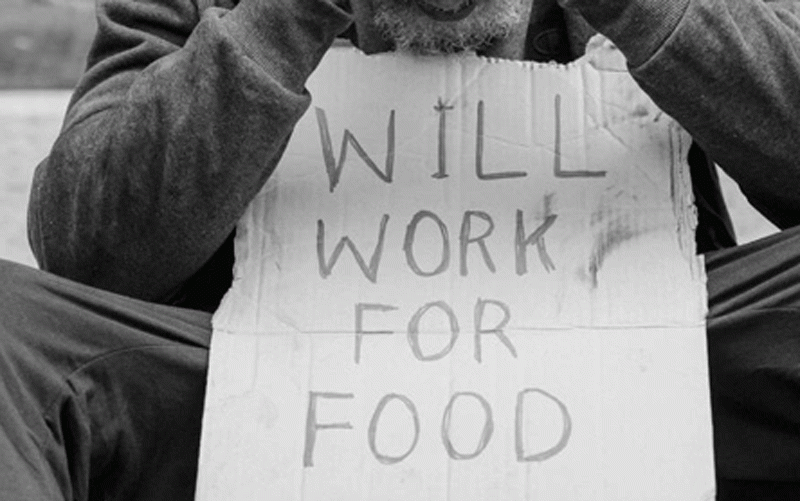
The ghosts of colonialism linger long after the Union Jack is lowered, often finding refuge in archaic laws that disproportionately target the vulnerable.
Zimbabwe’s Vagrancy Act [Chapter 10:25], a relic of the colonial era, is a prime example of such legislation, and despite years of condemnation and advocacy, it remains a stain on the nation’s human rights record.
It is a law beyond redemption, demanding nothing short of complete and utter repeal.
At ZimRights, we had an opportunity to continue our campaign against the Act and lift the veil on this law, interrogating its unconstitutional nature at a breakfast meeting with the parliamentary portfolio committee on defence, home affairs and security services on July 18, 2025.
The parliamentary breakfast meeting served as a stark reminder of the Act's continued existence and its devastating impact on the lives of ordinary Zimbabweans.
The Act, in its essence, criminalizes poverty and homelessness, defining a "vagrant" as someone with "no settled or fixed place of abode or means of support" who "wanders from place to place".
This vague and overbroad definition grants law enforcement officials sweeping powers to arrest individuals based on their socio-economic status, effectively punishing them for being poor.
Yet, poverty is not a crime and should not be treated as such. Nelson Mandela’s words loom large, “overcoming poverty is not a task of charity; it is an act of justice”.
- Zim needs committed leaders to escape political, economic quicksands
- Chicken Inn knockout Harare City
- Ziyambi’s Gukurahundi remarks revealing
- Ngezi stunned by 10-man Herentals in Chibuku Cup
Keep Reading
The vagrancy law, therefore, does not address the root cases of poverty and homelessness as social injustices, but rather perpetuates a cycle of exclusion.
At ZimRights we have computed that, approximately 1.5 million Zimbabweans are homeless - making them potential targets of this draconian law.
The consequences can be dire, with reports indicating that nine people have died in police custody after being arrested as vagrants.
These are not mere statistics; they are human beings whose lives have been tragically cut short by a law that should have been consigned to the history books long ago.
The Vagrancy Act is not only a violation of fundamental human rights, but also a betrayal of the very principles upon which Zimbabwe's liberation struggle was fought.
One of the philosophical underpinnings of the liberation struggle was to “do away with unjust laws and all forms of segregation, inequality, injustice, and freedom of blacks".
Yet, here stands the Vagrancy Act, a vestige of colonial oppression, continuing to perpetuate the very injustices that freedom fighters sought to eradicate.
As if that is not enough, the Act also flies in the face of international human rights standards.
The African Court on Human and Peoples' Rights has unequivocally condemned vagrancy laws, declaring them incompatible with the African Charter on Human and Peoples' Rights, the African Charter on the Rights and Welfare of the Child, and the Protocol to the African Charter on Human and Peoples' Rights on the Rights of Women.
The court has emphasised that such laws criminalise the status of individuals, target the poor and underprivileged, and violate their rights to dignity, equality before the law, freedom of movement, and protection from arbitrary arrest and detention.
Echoing this sentiment, UN human rights experts have called on governments worldwide to scrap "cruel and counterproductive" laws that criminalise homelessness and poverty.
They argue that such laws are not only a violation of human rights but also a misguided approach to addressing complex social problems.
As Balakrishnan Rajagopal, the UN special rapporteur on the right to adequate housing, on the occasion of the 60th anniversary (May 14, 2024) of Housing Rights, Northern Ireland, aptly stated, "Instead of addressing the global affordable housing and inequality crises, which are primarily responsible for homelessness, governments are increasingly turning to outdated and vague vagrancy laws...to move people off the streets and make them disappear".
The continued existence of the Vagrancy Act in Zimbabwe is a testament to the enduring legacy of colonialism and the persistent challenges in dismantling discriminatory legal frameworks.
It is a law that has no place in a democratic society that upholds the principles of human rights, equality, and social justice.
As Nelson Mandela, the iconic anti-apartheid revolutionary and former President of South Africa, once said, "To deny people their human rights is to challenge their very humanity."
The Vagrancy Act does precisely that, stripping vulnerable individuals of their dignity and treating them as criminals simply because they are poor and homeless.
It is for this very reason that other countries’ parliament like the United Kingdom (UK) parliament voted to repeal the Act in 2022.
It is time for Zimbabwe to consign the Vagrancy Act to the dustbin of history.
The recent parliamentary breakfast meeting by ZimRights provides a crucial opportunity for legislators to reflect on the Act's harmful consequences and take decisive action to repeal it.
The government must prioritise the development of comprehensive social policies that address the root causes of poverty and homelessness, rather than resorting to punitive measures that further marginalise the vulnerable.
Imagine a “Protection of Vulnerable Communities Act” – a legislative instrument guaranteeing social, legal, economic, and livelihoods safety-net for vulnerable populations.
The Vagrancy Act is beyond redemption. It is a law that embodies injustice, discrimination, and a callous disregard for human dignity.
Its repeal is an urgent matter of legal reform and a moral imperative.
Only by abolishing this archaic law can Zimbabwe truly demonstrate its commitment to upholding the rights and dignity of all its citizens - leaving no one behind.
*Phillip Nyasha Fungurai is a human rights activist and thought leader. He writes here in his own capacity. Feedback to this Op-ed can be sent to [email protected]









